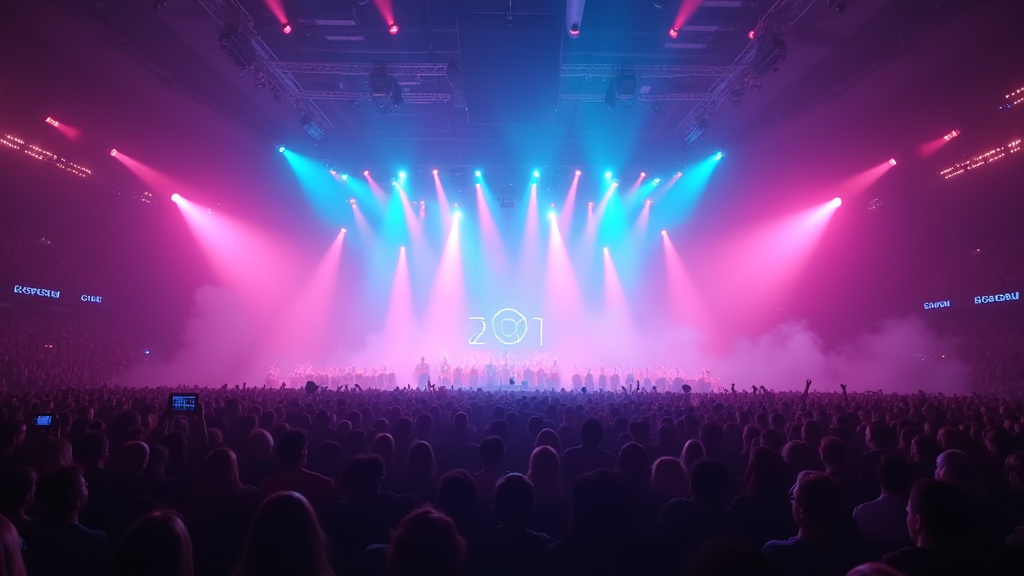Paris, France — Music streaming service Deezer has announced a significant step in its ongoing battle against fraudulent activity on its platform, revealing the integration of artificial intelligence (AI) song tags. The move comes as the global music industry grapples with the rapid proliferation of AI-generated content and the complex legal and ethical questions it raises, particularly concerning copyright and fair compensation.
According to a statement from the company, the newly implemented AI technology is designed to identify and flag songs suspected of being used for “stream manipulation.” This practice, involving the artificial inflation of streaming numbers through bots or other illicit means, is a growing concern for platforms, artists, and rights holders as it distorts metrics and diverts royalty payments away from legitimate creators.
Deezer stated that any songs identified by the AI as being involved in such fraudulent activities will face severe consequences, specifically having their royalty payments cut off. This measure underscores the platform’s commitment to ensuring that revenue generated from streaming is distributed accurately and fairly based on genuine listener engagement.
The Broader Context: AI’s Disruptive Impact on Music
The integration of AI has become one of the most prominent and contentious issues within the contemporary music industry. While AI offers exciting potential for creative exploration, aiding artists in composition, production, and sound design, it also sparks considerable debate and concern, particularly regarding its legality, the originality of AI-generated works, and its economic impact on human artists.
One major area of friction involves the training data used by generative AI models. Many models are trained on vast datasets of existing music, raising questions about whether this training process constitutes unauthorized use or even copyright infringement if the output is deemed derivative of the source material.
Mounting Legal Challenges Against AI Music Generators
These concerns have translated into concrete legal action across the globe. Major record companies have initiated significant lawsuits against two popular AI song generators, Suno and Udio. These lawsuits allege widespread copyright infringement, claiming that the companies exploited the recorded works of countless artists without proper authorization or compensation.
Specific high-profile artists named in these complaints include iconic figures such as Chuck Berry and pop superstar Mariah Carey, highlighting the scale and historical breadth of the alleged unauthorized use of copyrighted material for training AI models.
Parallel to these actions, a significant lawsuit has also been filed in Europe by Gema, a prominent German royalty-collection group. Gema has filed a similar lawsuit against Suno in Munich, accusing the service of generating songs that are “confusingly similar” to original versions by established artists.
The lawsuit filed by Gema specifically references examples of AI-generated tracks that allegedly bear striking resemblance to works by renowned European acts such as synth-pop pioneers Alphaville and disco legends Boney M. These cases collectively underscore the urgent need for legal clarity and robust enforcement mechanisms as AI technology rapidly evolves and its presence in the music ecosystem expands.
Implications for the Music Ecosystem
Deezer’s implementation of AI tags for fraud detection is directly linked to this broader struggle. By targeting stream manipulation, the platform aims to protect the integrity of its streaming data, which is fundamental to calculating and distributing royalties correctly. Fraudulent streams not only cost platforms but also dilute the earnings of legitimate artists whose genuine streams are overshadowed by artificial activity.
Platforms like Deezer are increasingly facing pressure to implement sophisticated measures to combat fraud and ensure transparency, especially as the lines between human creation and AI generation become blurred. The legal battles against AI generators could potentially redefine how AI models are trained and licensed in the future, potentially leading to new licensing frameworks or stricter regulations on the use of copyrighted works.
The outcomes of the lawsuits against Suno, Udio, and the action by Gema will have far-reaching implications for the future of music creation, distribution, and copyright law. They will likely influence how AI is integrated into creative workflows, how platforms manage content, and ultimately, how artists are compensated in the digital age.
Looking Ahead
The convergence of AI technology, the fight against online fraud, and complex copyright issues presents a multifaceted challenge for the music industry. Deezer’s deployment of AI tags is one operational response to the problem of stream manipulation, aiming to safeguard its platform’s economy.
Simultaneously, the legal system is being tested by fundamental questions about authorship, ownership, and fair use in the context of generative AI. As these technological and legal landscapes continue to evolve, proactive measures by platforms like Deezer, coupled with the outcomes of key legal challenges, will shape the future trajectory of the digital music world.





